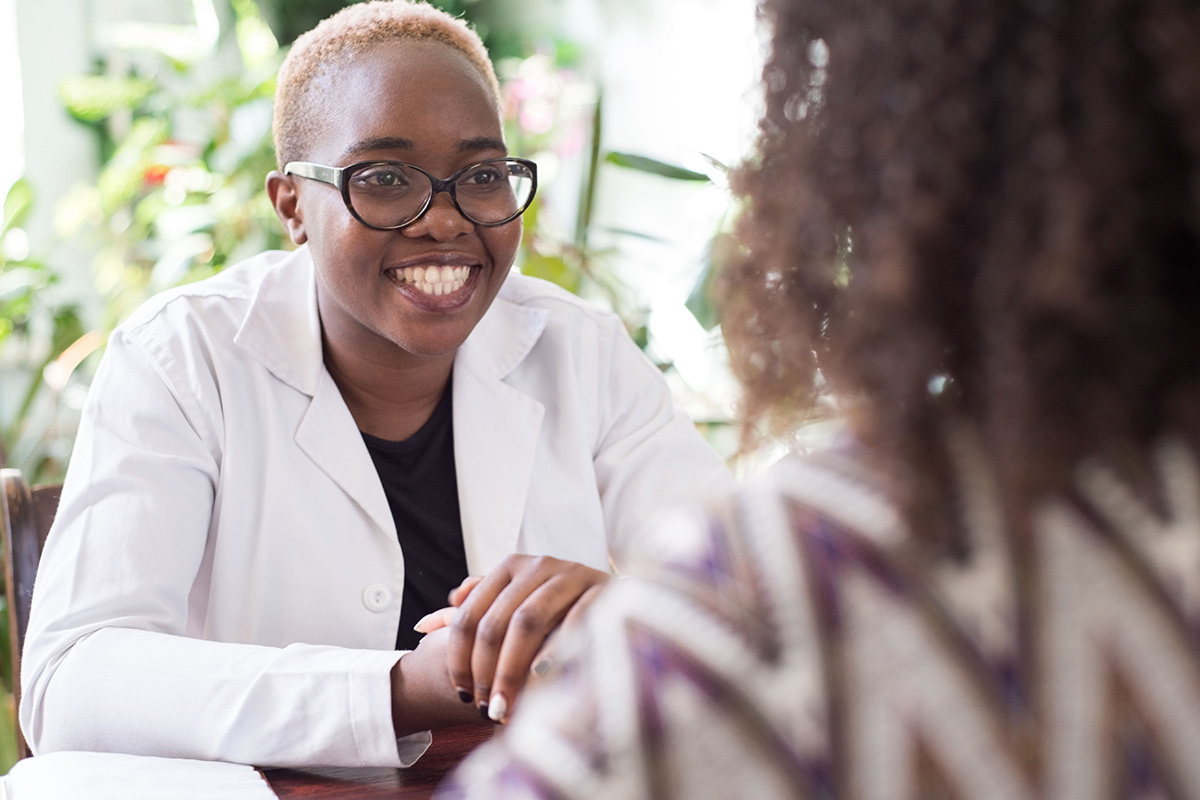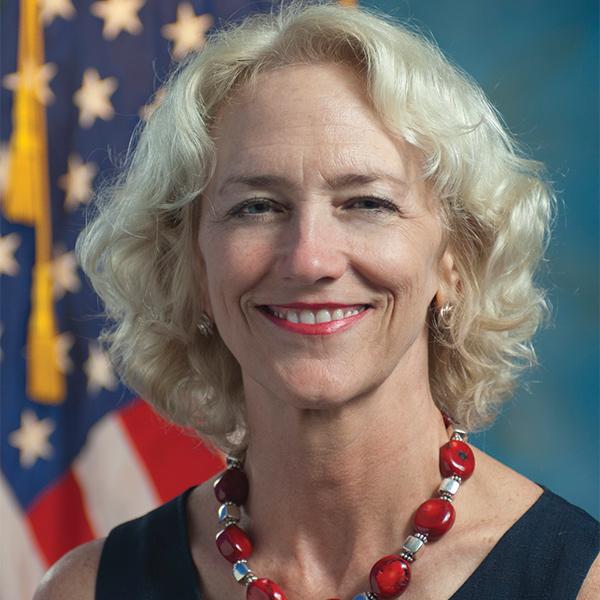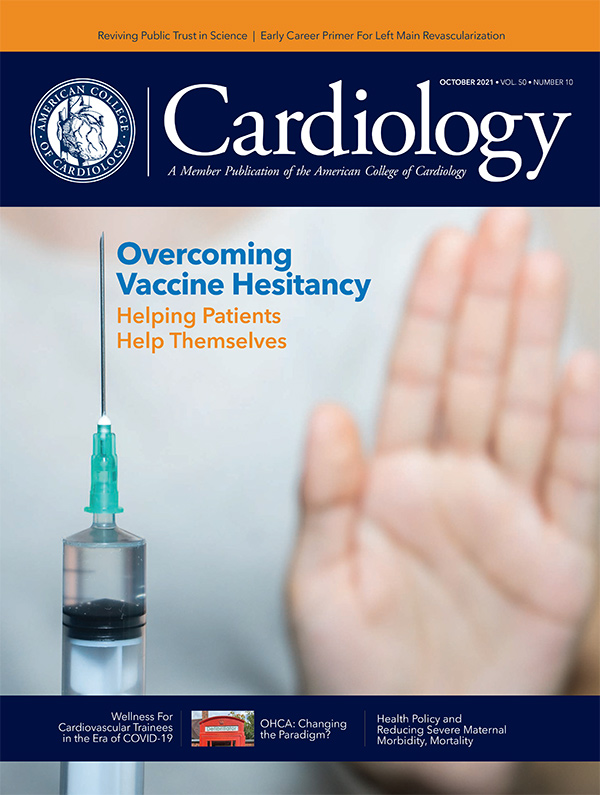Guest Editorial | Reviving Public Trust in Science

I learned about trust in science around the dinner table, on the hallway phone, and in the driveway. My dad was a family practitioner, the only doctor for several counties in rural Arkansas. During my childhood, a time before answering services, pagers or cell phones, when people needed "Doc," they just called our house. My mother used to say with gentle resignation that when we sat down for supper, a light flashed atop the water tower, signaling the perfect time to call.
I saw first-hand what data continue to show us today: that nurses, like my mom, are among the most trusted individuals on the planet. Many people calling our house wanted to "vet" their symptoms with "Miz Doc" before speaking with dad. If someone had an urgent need – cotton gin accident, gunshot or a baby crowning – they just screeched into the driveway and honked until my dad or mom appeared. Along with fear, shock and urgency, the faces I saw were also filled with trust.
My experiences with trust have been many since those days. In my inaugural attempt as a medical student to take a patient's history, I dreaded asking what seemed to be very personal questions. But instead of taking offense, the person I was interviewing invariably answered frankly and in detail. The words "sacred trust" popped to mind and have stayed with me ever since. I tried to honor that trust during my years of practice in Northern California, years that were enriched and informed by ACC colleagues and the opportunities for service and learning that the College provided me.
As a member, trustee and staff, I saw how trust operates within ACC, from the processes that protect the scientific integrity of documents and manuscripts to the interactions among members on committees and task forces to the relationships with partners, including other societies, government and industry.
One of the ways to build trust is to be trustworthy, to tell the truth. In this regard, I applaud the College's work to advance diversity, inclusion and equity and to speak to the impact of racism, discrimination, and other powerful determinants of health and well-being. These actions create opportunities to build and strengthen trust, repair past damage and prevent future harm.
For the first eight years of my decade at the Centers for Disease Control and Prevention (CDC), I served as executive director of Million Hearts®, a public-private initiative co-led with the Centers for Medicare and Medicaid Services to prevent heart attacks, strokes and other cardiovascular events. New in federal service, I was swept away by the dedication, scientific rigor and expertise manifested by the Million Hearts® team. They spent more than two years prior to the launch in 2011 poring over the evidence, analyzing data, prioritizing interventions and crystallizing the "case" for implementing what works to prevent cardiovascular disease. Their diligence led to hearty acceptance of the framework and widespread participation – evidence of trust – among federal and private sector partners, including ACC.
In 2020, the world changed. SARS-CoV-2 was novel, and that made everyone on earth depend on science. Science was central to the global response and was perhaps never before so tested, twisted and triumphant.
Although vaccine skepticism, misinformation, and tensions between science and policy were not new in 2020, the pandemic's devastation fertilized these issues and transformed the trust landscape. During my two-year service in the Office of the Surgeon General, I worked with gifted and dedicated public servants, committed to addressing the inequities made manifest by COVID-19, translating the rapidly evolving science for a frightened public, and balancing the urgency of the COVID-19 response with the imperative to get the science "right." These individuals operated in a highly polarized environment equipped with the echo chamber that is social media. They engaged a public that often perceived shifts in guidance as evidence of mistakes, rather than the iterative, messy, evolution of thought that is science. While trust in clinical teams has remained high, trust in science institutions has suffered.
Going forward, it is time for all of us – clinicians, public health professionals, researchers and patient advocates – to strengthen the public's trust in science. In this mission, I know that CDC and ACC are aligned. Together, we can commit to continuing to provide clarity about what we know and what we don't know; maintaining scientific integrity in our publications, presentations and policies; and speaking the truth and igniting action to address the drivers of cardiovascular health inequities. As we heal from COVID-19, we can and must revive the public's trust, the same trust that was present decades ago in rural Arkansas.

This guest editorial was authored by Janet S. Wright, MD, FACC, director of the Division for Heart Disease and Stroke Prevention at the Centers for Disease Control and Prevention.
Clinical Topics: Cardiovascular Care Team, Congenital Heart Disease and Pediatric Cardiology, COVID-19 Hub, CHD and Pediatrics and Quality Improvement
Keywords: ACC Publications, Cardiology Magazine, Child, United States, SARS-CoV-2, Trust, Answering Services, Cardiovascular Diseases, Private Sector, Social Media, Planets, Centers for Medicare and Medicaid Services, U.S., Trustees, Racism, Mothers, Pandemics, Public Health, Arkansas, Anniversaries and Special Events, COVID-19, Patient Advocacy, Medicare, Population Health, Heart Diseases, Communication, Myocardial Infarction, Policy, Stroke, Surgeons, Cell Phone, Fear, Centers for Disease Control and Prevention, U.S., Accidents
< Back to Listings

